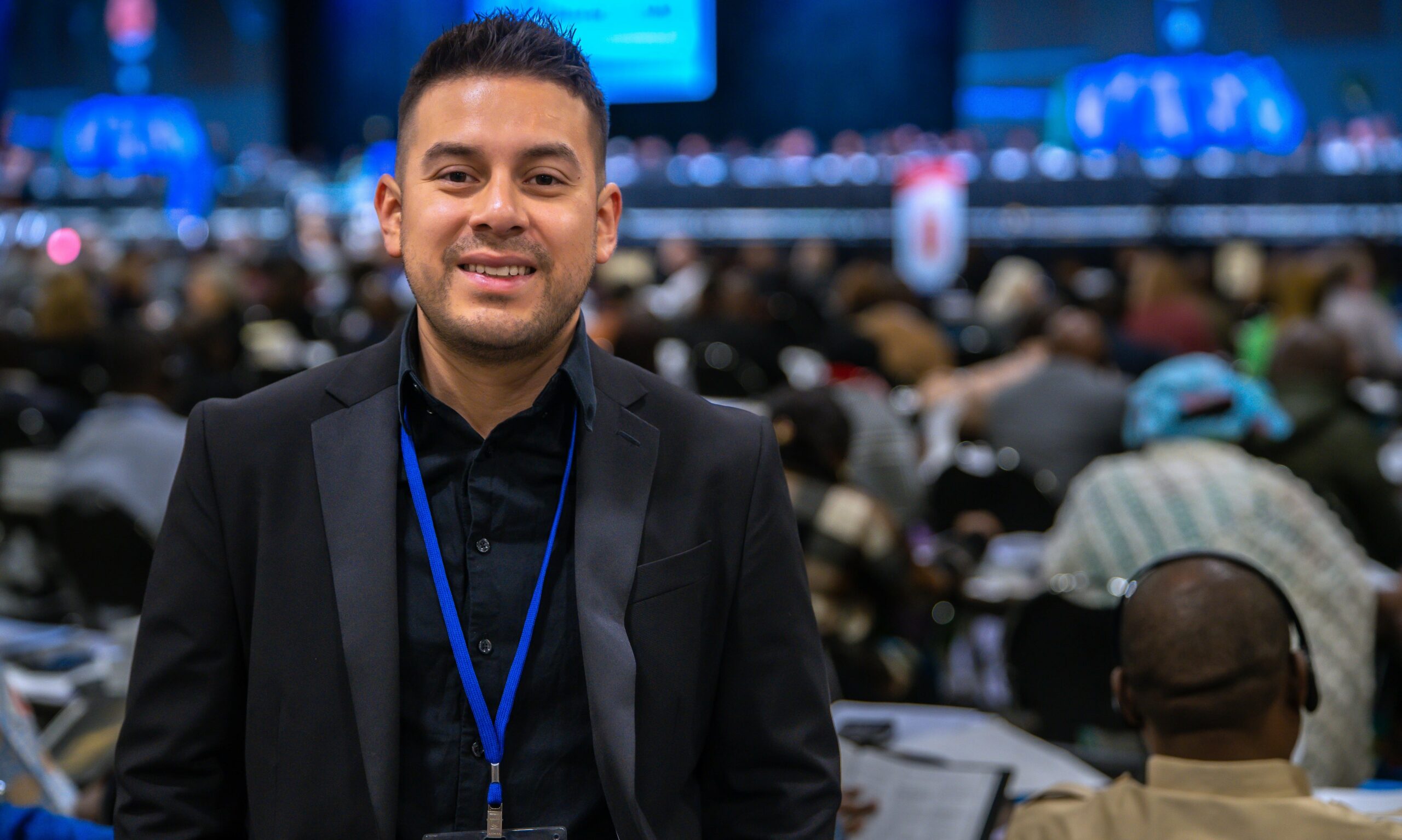 Rev. Noé Gabriel López at General Conference
Rev. Noé Gabriel López at General Conference
Amid the thousands in attendance at the Charlotte Convention Center, where the United Methodist General Conference is underway, a distinct figure stands watchfully at the periphery of the plenary floor. It’s Rev. Noé Gabriel López, the associate pastor of First United Methodist Church of Germantown, PA. Come July 1, he will step into his new role as Associate Superintendent for the Southeast Region with a focus on urban ministry.
But today he serves in a different capacity — as one of the 1,024 volunteers orchestrating the flow of this massive event. His gaze is fixed intently on the stage and closely watching each person who approaches the microphone with pen and paper in hand. This is because he is volunteering as a monitor. After his shift was over, a few questions were asked to learn more.
What are you volunteering for, and for how long?
“I am volunteering as a monitor for the General Commission on Religion and Race (GCORR). My volunteer commitment spans the first week of General Conference, starting from Tuesday, April 22nd and continuing until Saturday, April 27th.”
What is monitoring, and why is it important?
“Monitoring at the General Conference involves closely observing the proceedings to ensure that the principles of equity and justice that we uphold in our church are actually reflected in practice in our worship, plenaries, and legislative committees. This vigilance is crucial because it ensures that the General Conference serves as a safe and respectful environment for people from diverse cultures and backgrounds. By monitoring, we uphold our commitment to inclusivity and fairness, fostering a sense of belonging and trust among all participants in the global church community.”
What inspired you to volunteer in this capacity?
“As a Latine male, I am keenly aware of the intersections of my identity and how certain aspects of it marginalize me while others afford me privilege. This awareness has made me more conscientious about my identity and the perspectives of others. I am here because I recognize the need for personal growth in understanding and appreciating different cultures and ways of life. If my volunteering can be of help to others in this journey, I am more than willing to contribute.”
What is your overall sense of General Conference so far, especially as it pertains to diversity, equity, and inclusion?
“So far, my experience with the General Conference has been a mix of hopefulness and recognition of areas for improvement. I’ve observed that worship sessions have primarily been conducted in English, which could be more inclusive if they incorporated languages spoken by attendees from our Central Conferences. Additionally, diversifying the musical genres in worship would add richness to our collective experience; relying solely on traditional hymns can make worship feel overly focused on a U.S. white and traditional perspective.
On a positive note, I’ve been encouraged by the diversity among our episcopal leadership. Seeing Latina, Filipino, and Native American bishops leading Plenaries, and having Bishop Tracy Smith Malone, a black woman, as the new President of the Council of Bishops, fills me with hope.
It reminds me of the vision of the Kin-dom of God that mujerista theologian Ada María Isasi-Díaz speaks about— a vision of inclusivity and equality. I look forward to our church continuing to move towards that ideal.”
